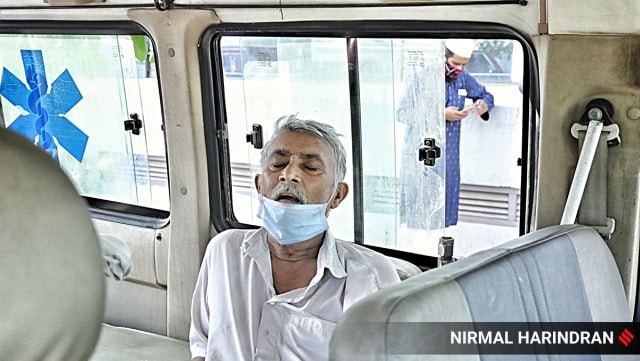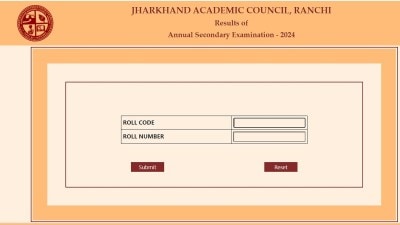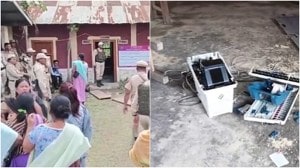- India
- International
‘Possible variant behind current spike traced in December in Maharashtra, but not flagged’
But it was not flagged as it was still a variant with an unknown character, that too, detected when the cases in India were on a decline, said Anurag Agrawal, director, CSIR - Institute of Genomics and Integrative Biology (IGIB).
 A Coronavirus patient inside an ambulance. (Express Photo by Nirmal Harindran)
A Coronavirus patient inside an ambulance. (Express Photo by Nirmal Harindran)The possible coronavirus variant behind the current surge in the Covid-19 cases in India was traced in December last year from samples collected from a part of Maharashtra, but it was not flagged as it was still a variant with an unknown character and detected when cases were on a decline, said Anurag Agrawal, director, CSIR-Institute of Genomics and Integrative Biology (IGIB).
Agrawal was speaking at a panel discussion organised as part of a webinar titled ‘Genome Sequencing of SARS-nCov’, organised by the Department of Biotechnology (DBT), on Friday.
“The first sequences of the so-called Indian variant B.1.617 were seen in December, but we were in a declining phase. We see hundreds of mutations every time we sequence. There was absolutely no reason to flag a variant or a mutation of an unknown character in a declining phase of an outbreak.”
But samples from a part of Maharashtra began to show some signs. “From a part of Maharashtra, L452R mutation was being seen along with E484Q in an increasing number of samples during the outbreak that started in January and it was flagged,” said Dr Agrawal.
Genome sequencing in India started only after the UK confirmed a new variant in November last year in a possible fresh wave. Indian scientists were roped into the SARS CoV2 Genome Sequencing Consortium (INSACOG) — a 10-institution team tasked with performing genome sequence and surveillance that began sequencing here.

“A ‘variant of interest’ was identified and all necessary tests were performed. By the end of March, this variant was moved from a ‘variant of interest’ to a ‘variant of concern’. After obtaining the samples from cases and vaccines, we can now co-relate backwards in an outbreak starting in January and till March end,” he added.
Along with IGIB, labs in this consortium include National Institute of Virology (NIV), National Institute of Biomedical Genomics (NIBMG), National Centre for Disease Control (NCDC), and Regional Centre for Biotechnology (RCB), among others.
Virus mutations are natural, said Shekhar Mande, director general of the Council of Scientific and Industrial Research (CSIR).
Other panellists attributed the spike in the cases to a combination of factors, including lack of adherence to Covid-appropriate behaviour and declining immunity of people.
NCDC chief Dr Sujeet Singh said while the UK variant (B.1.1.7) is the primary one in Punjab, “we are seeing a different type of scenario with both the UK variant and the Indian variant B.1.617 (double mutation) in New Delhi”. The UK variant, however, has doubled to 50 per cent by March end, he said.
However, when contacted by The Indian Express, Dr Singh said that they could not conclusively say that the surge in Delhi was being driven by the UK variant alone. “We cannot say this as the number of samples were less. We have more runs that have taken place and are analysing more data,” he said.
So far 15,135 samples have been sequenced by INSACOG. Variants of concern (11 per cent) were found in 1,735 cases. A total of 1,644 cases of the UK variant have been found across the country, 112 of South African variant and 732 of the Indian variant B.1.617 (double mutation).
“As of now there is no rise in clinical severity of cases. Still the strategy is that our central surveillance team has identified sentinel sites at tertiary hospitals in each state where samples are taken from clinically severe cases so as to understand how genomic variant is linked to severity or fatality,” Dr Singh said.
All vaccines, despite variants, are blocking severe disease and deaths, Dr Anurag Agarwal said, Dr Priya Abraham, Director of National Institute of Virology, said that the aim should be to get as many as vaccinated so that the risk against severe disease is virtually eliminated.
Click here to join Express Pune WhatsApp channel and get a curated list of our stories
Apr 19: Latest News
- 01
- 02
- 03
- 04
- 05






































